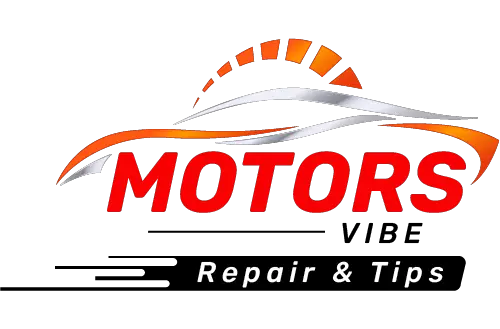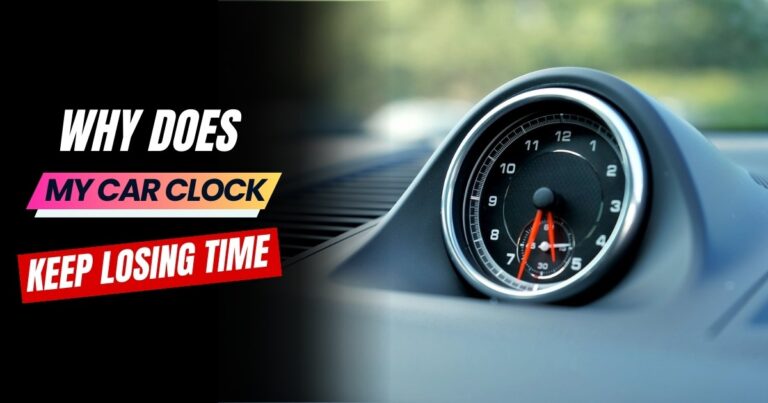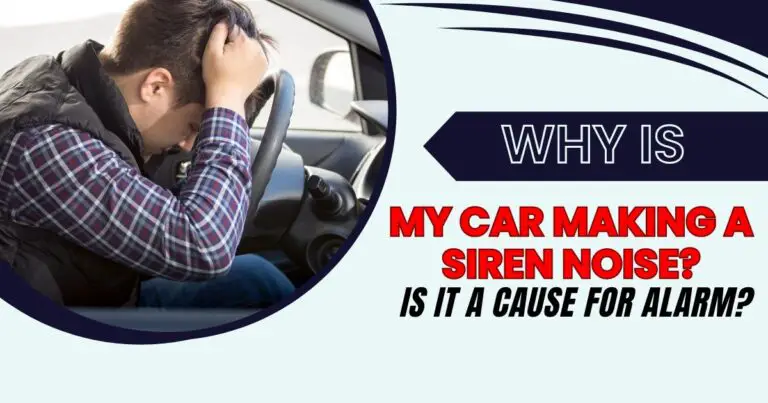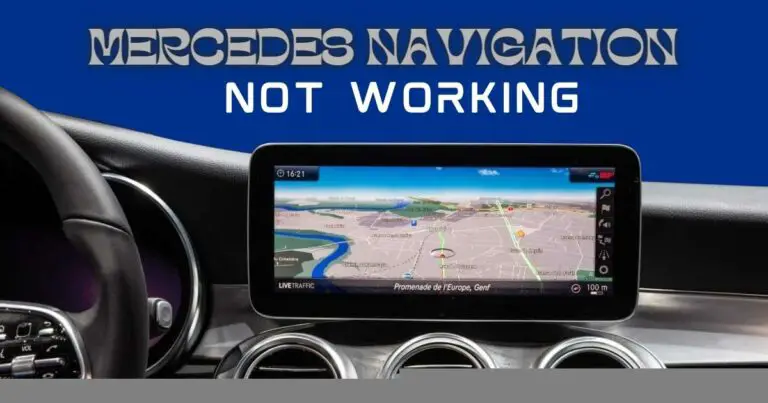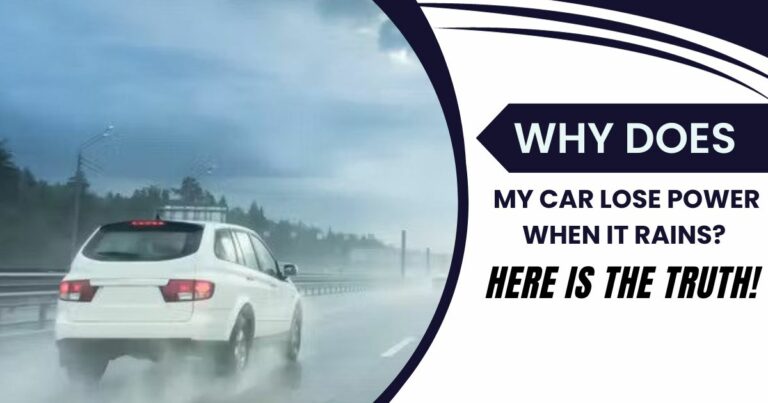Why Does My Gas Tank Make a Popping Noise? (The Explanation)
Modern automobiles rely on complex systems to deliver fuel efficiently to the engine, ensuring optimal performance. However, vehicle owners sometimes encounter peculiar sounds emanating from their gas tanks, including knocking and popping noises.
For many vehicle owners, the sound of a popping noise emanating from their gas tank can be a cause for concern. It’s not uncommon to experience moments of worry and confusion when faced with such unexpected sounds.
However, understanding the reasons behind the gas tank popping noise can alleviate anxiety and help car owners make informed decisions regarding their vehicle’s maintenance. In this article, we will explore the various reasons behind this unusual noise to equip you with the knowledge necessary to address the issue effectively and maintain the long-term reliability of your vehicle.
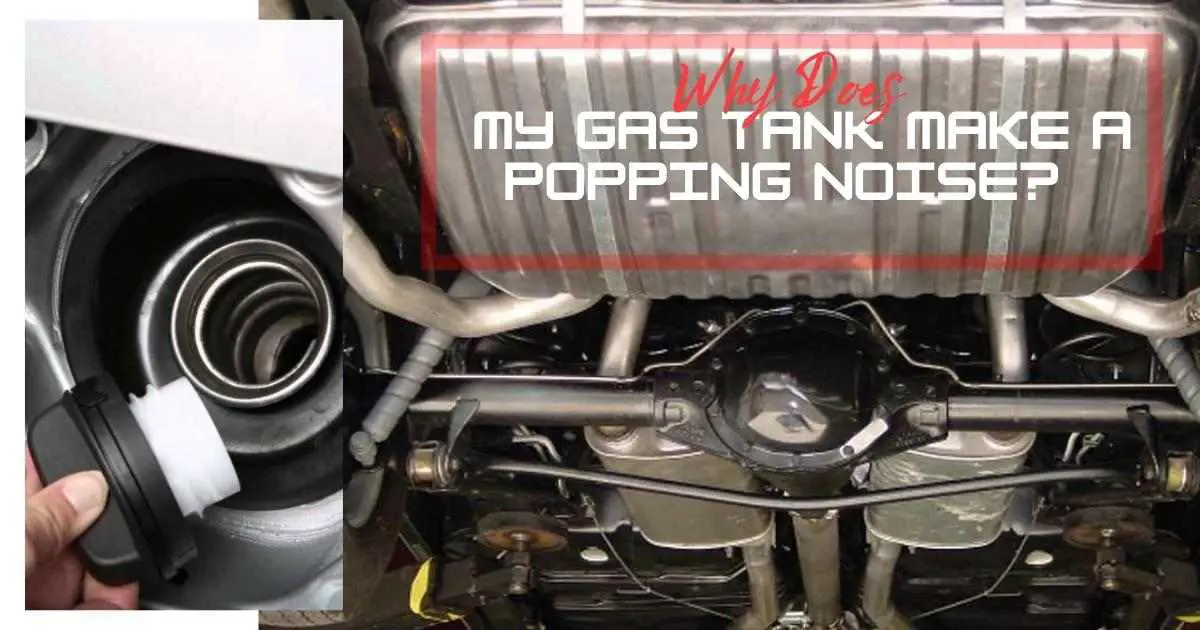
Why Does My Gas Tank Make a Popping Noise?
While some popping noises from the gas tank may be harmless, it is crucial to pay attention to any sudden or unusual sounds. If you notice persistent or worsening noises, strong odors, leaks, or any other signs of malfunction, it is always a good idea to take precautions.
Gas tanks making popping noises can be attributed to various factors, ranging from normal operational sounds to potentially hazardous situations. Here are some common reasons why your gas tank might produce popping noises;
Temperature Changes
Temperature changes often makes the air inside the gas tank to expand or contract. When the air expands, it creates pressure inside the tank, which can lead to popping noises as the pressure is released. Similarly, when the air contracts, it can create a vacuum inside the tank, resulting in popping sounds as the vacuum is relieved.
These changes in pressure and vacuum cause the gas tank’s walls or components to flex or move slightly, producing the popping or cracking noises that you may hear. This is typically a normal occurrence and is often not a cause for concern.
Fuel Evaporation
Fuel tanks are designed with venting systems to prevent the buildup of pressure or vacuum inside the tank. However, if the vent becomes blocked or malfunctions, pressure imbalances can occur. When the pressure inside the tank equalizes suddenly, it can lead to a popping noise.
This issue may require attention to ensure proper venting and prevent potential damage to the tank or fuel system. If your car tank is making a knocking sound all sudden, it’s important to address it promptly to ensure proper functioning and prevent potential damage to the tank or the fuel system.
Fuel Pump Issues
The fuel pump is responsible for delivering fuel from the tank to the engine, but it can sometimes make popping or whining noises. This can happen when the pump is struggling to maintain consistent fuel pressure or if there is a problem with the pump’s internal components.
In addition, a faulty fuel pump can lead to irregular fuel flow or pressure fluctuations within the fuel system. These fluctuations can cause air bubbles to form in the fuel, which may result in popping or knocking sounds as the bubbles pass through the system.
Contaminated Fuel
Contaminated fuel itself is unlikely to directly cause popping noises in the gas tank. However, contaminated fuel can lead to irregular combustion inside the engine, which may result in backfires or minor explosions. These combustion irregularities can generate popping sounds that may be audible near the gas tank or the exhaust system.
Contaminated fuel can include impurities, water, or other substances that interfere with the proper combustion process. When the fuel ignites in the engine, these contaminants can disrupt the combustion sequence, causing uncontrolled ignition or incomplete burning of the fuel. As a result, small explosions or backfires can occur, leading to popping noises.
While the primary impact of contaminated fuel is felt in the engine, the associated noises can sometimes be heard near the gas tank or exhaust system.
Damaged or Loose Fuel Line
A loose or disconnected fuel line can lead to other issues in the fuel system that may result in popping sounds. For instance, if a fuel line is loose or disconnected, it can create air or vacuum leaks in the fuel system. These leaks can cause disruptions in the fuel flow, leading to irregular combustion in the engine. As a result, backfires or explosions can occur, generating popping noises.
Furthermore, if the loose fuel line is causing fuel pressure fluctuations or interruptions, it can affect the overall performance of the fuel system. This can lead to misfires or incomplete combustion, which may manifest as a loud popping sound in car.
Clogged Fuel Injectors
Fuel injectors play a crucial role in delivering precise amounts of fuel to the combustion chamber. However, when they get clogged or dirty, the fuel spray may be compromised, causing an imbalance in the fuel-air mixture. This imbalance can lead to incomplete combustion or fuel-rich conditions, which can, in turn, cause uncontrolled or delayed ignition.
The combustion irregularities often result in popping sounds near the gas tank or exhaust system. Proper maintenance and cleaning of fuel injectors are essential to prevent such issues and ensure smooth engine performance.
Troubleshooting Gas Tank Making a Pooping Noise
Experiencing popping noises from your gas tank can be unsettling and raise concerns about potential issues with your vehicle. However, understanding the possible causes and implementing appropriate troubleshooting steps can help identify and resolve the problem. If your gas tank is making a popping noise, here are some simple steps you can take to identify and potentially resolve the issue;
- Monitor temperature changes- If the popping noise occurs during extreme temperature changes, such as when the vehicle is parked in the sun or cold weather, it is likely due to the normal expansion and contraction of the gas tank. In this case, the noise is typically harmless and nothing to be concerned about.
- Inspect the fuel venting system- Ensure that the venting system in your gas tank is functioning properly. A blocked or malfunctioning vent can cause pressure imbalances, resulting in popping noises. Check for any obstructions or damage to the vent lines or vent valves. Also, ensure to clean or repair the vents as necessary to ensure proper airflow.
- Examine the fuel quality- As we have stated, contaminated fuel, such as fuel with water or impurities, can lead to irregular combustion and popping noises. As such, consider using a fuel additive or treatment designed to remove contaminants from the fuel system. Additionally, ensure that you are using high-quality fuel from reputable sources.
- Check for fuel system issues- Inspect the various components of the fuel system, including the fuel pump, fuel filter, and fuel injectors. If you establish any issues with these components, have them inspected and repaired or replaced as soon as possible.
Also Read: Why Does My Car Smell Like Nail Polish Remover? The Facts
Conclusion
The popping noise coming from your gas tank can be attributed to different factors as we have discussed above. While it can be alarming to hear these sounds, they are usually not a cause for major concern. However, if you notice any additional symptoms such as a decrease in fuel efficiency, difficulty starting the vehicle, or a strong smell of fuel, it is important to take the appropriate measures as soon as possible.
